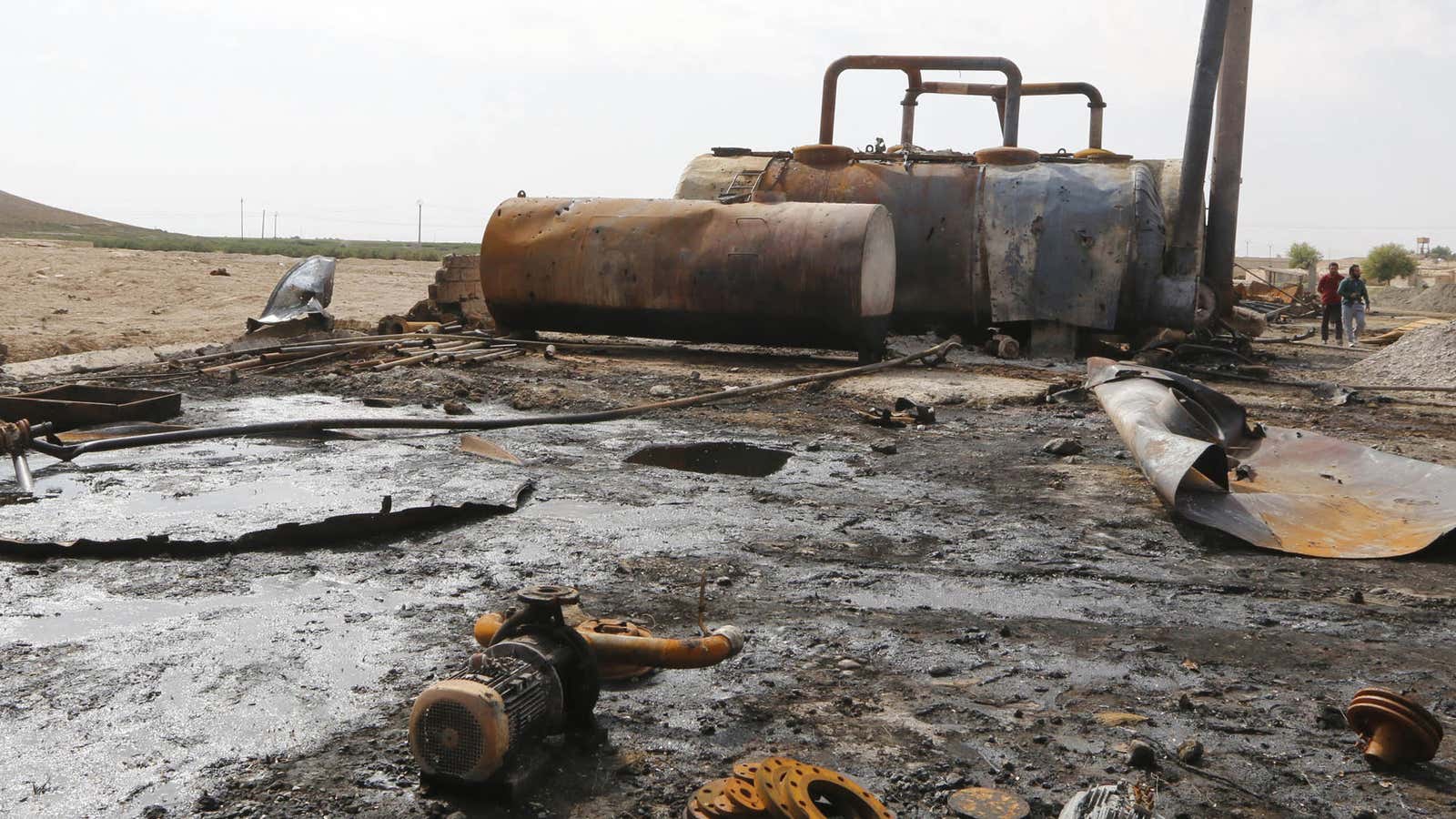We’ve long known that the Islamic State pulls in vast sums of money from oil sales, extortion, ransom, and donations—but it turns out that the group is also, somewhat improbably, using the international financial system to manage its money.
That fact was revealed yesterday by David Cohen, the US undersecretary for terrorism and financial intelligence in the Treasury Department. His speech to the Carnegie Endowment in Washington, DC was the first confirmation that the militants appear to be using international banks, which makes them vulnerable to US efforts to disrupt their finances. In doing so, he challenged the small global cadre of ISIL experts, who have long claimed that ISIL works almost exclusively in cash.
“Scores of bank branches are located in territories where ISIL operates,” he said. “Through cooperation with the Iraqi authorities, bank headquarters, and the international financial community, we aim to prevent ISIL from using those bank branches.”
If Middle East and terrorism experts had been right in their descriptions of ISIL’s financing habits, the group would be extremely difficult to target using the financial countermeasures that the Treasury Department has successfully deployed against al-Qaeda, Iran and Russia. But, given the demands of not just fighting but also governing a vast swathe of territory, it has always seemed unlikely that ISIL could function on an all-cash basis.
Cohen said that even though ISIL is very different from other terrorist groups, conventional tools of financial interdiction are valid, and that his 700-person office is aggressively going after the group’s bank transactions:
ISIL’s ability to make the most effective use of money that it raises depends on its access to the banking system in Syria, Iraq, and internationally. Operating entirely in cash is both cumbersome and risky–cash is bulky, vulnerable to theft, and requires complicated logistics to transport. Moreover, ISIL will have a hard time funding external operations, including facilitating the movement of foreign fighters, without access to the international financial system.
Indeed, ISIL’s vast financial commitments may be one of its biggest vulnerabilities, especially when compared to its unmatched expertise on the battlefield. Cohen noted that the Iraqi provinces occupied by ISIL have local government budgets of more than $2 billion a year, which far outstrip ISIL’s total revenue.
Cohen repeated the assertion that ISIL earns about $1 million a day from oil sales, but that number is almost certainly exaggerated, especially since US bombers have been targeting ISIL’s oil fields, refineries and smuggling routes.
In an Oct. 15 report, the International Energy Agency said that the bombing had cut down ISIL production to 20,000 barrels a day. Given the plunge in global oil prices, and the discount required to attract middlemen willing take the risk of smuggling the crude into Turkey, ISIL is certainly receiving much less than the $86-a-barrel world price—perhaps in the range of $20-$25 a barrel. Hence its take could be more like $500,000 a day—still substantial, but much lower than the usual estimates.
